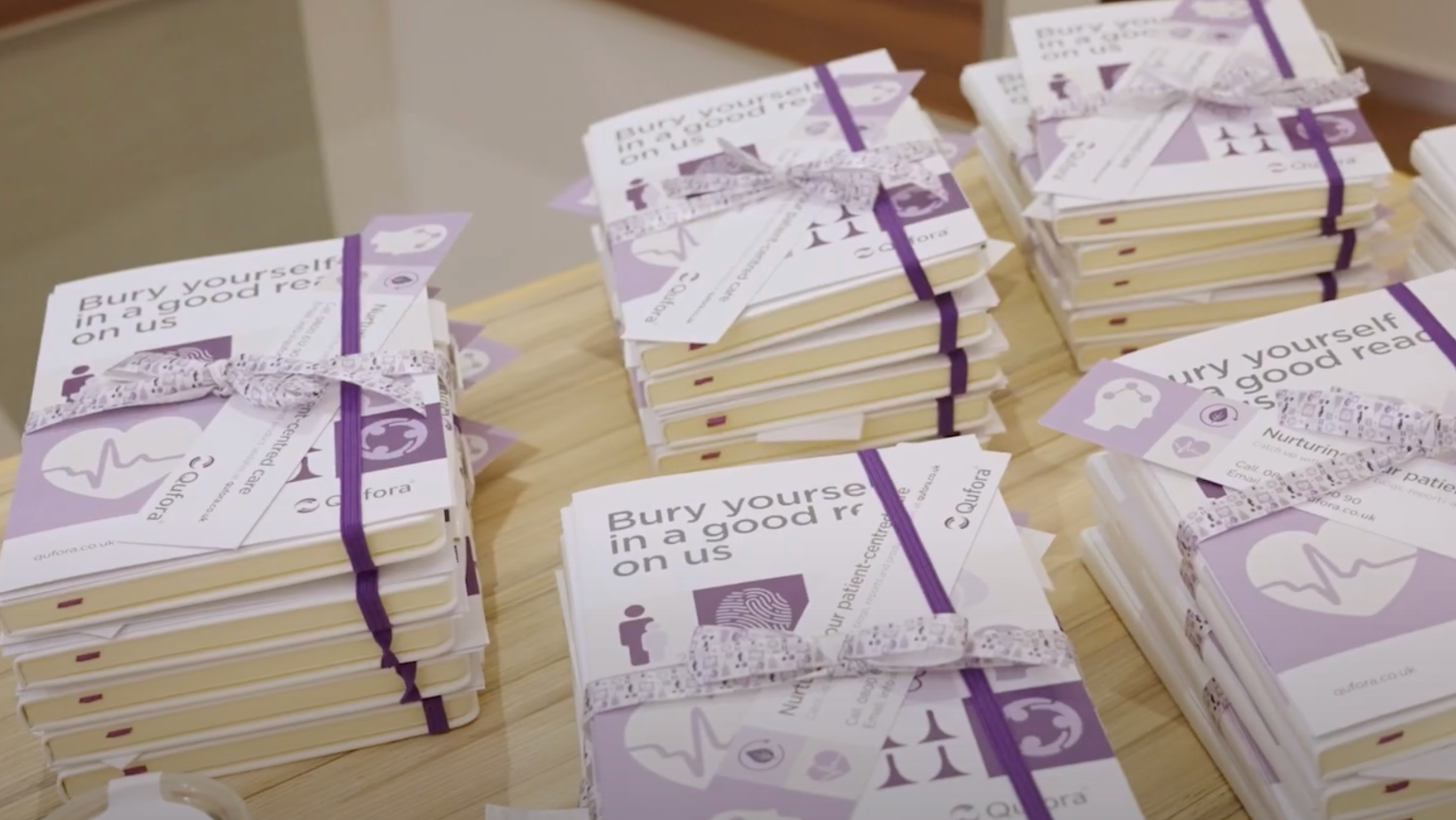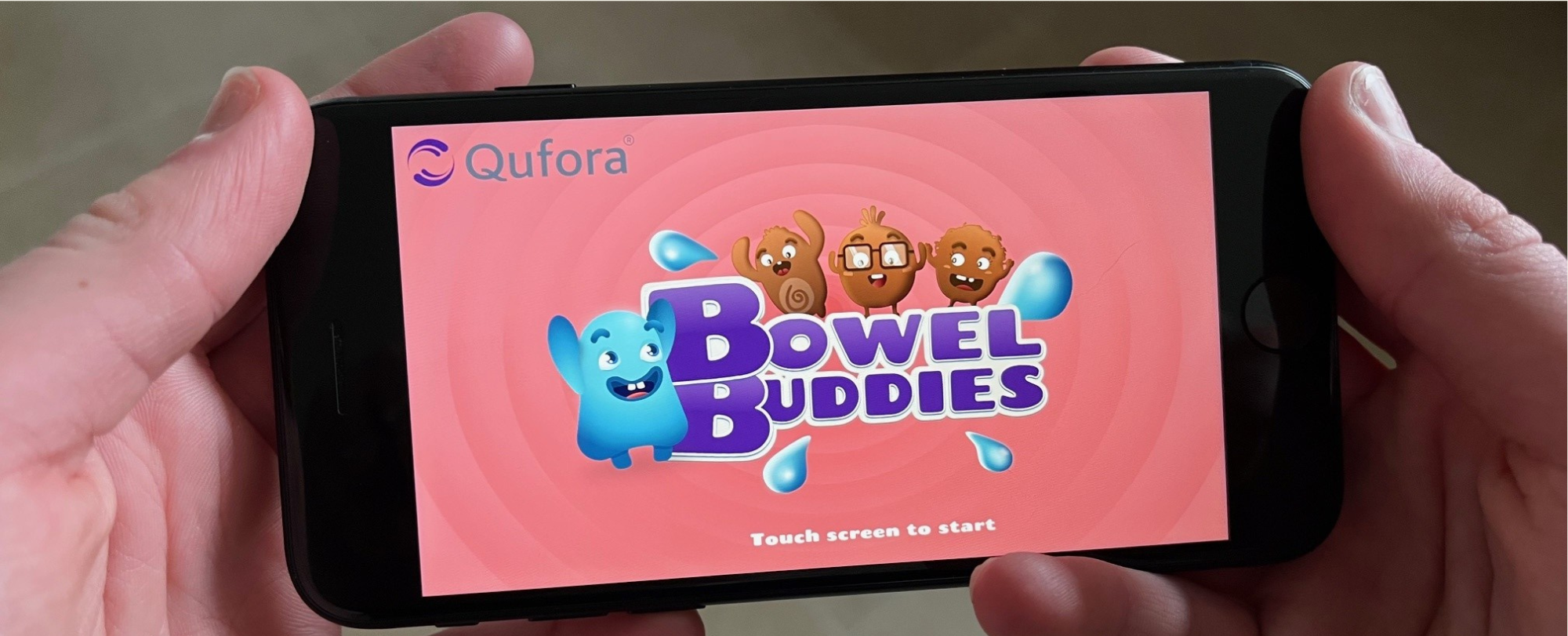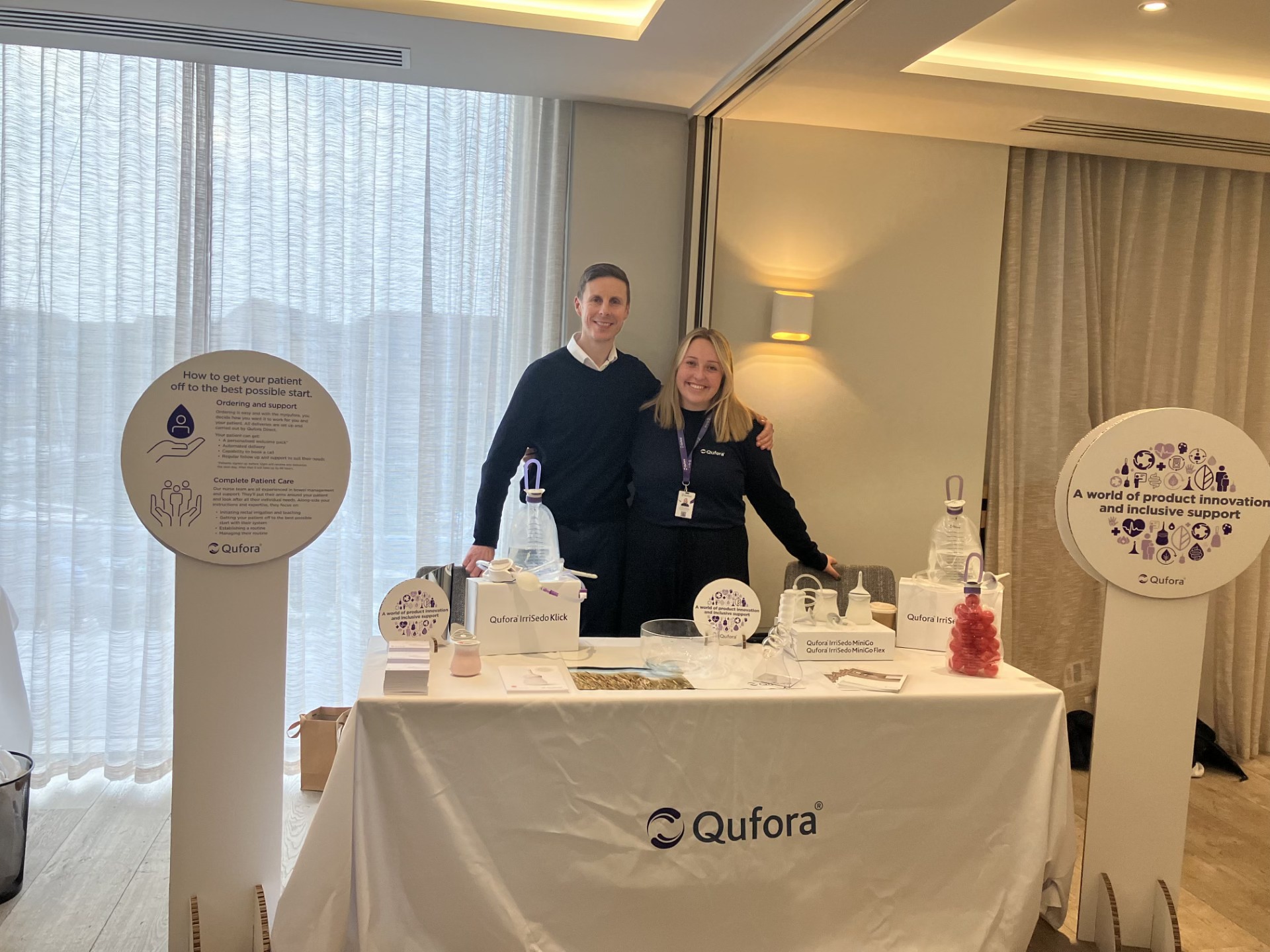An Insight into Rogini’s Anticipations for Our Educational Event with Brigitte Collins
Brigitte caught up with Rogini Balachandran, Senior Clinical Advisor at Qufora HQ in Denmark. Rogini will be joining us at our next educational event in London, so we spoke with her to learn about what she is most looking forward to at the event.
What are you hoping to take away from the London educational event?
Before working at Qufora, I was a consultant surgeon in Denmark, so I worked with transanal irrigation and referred patients to this treatment modality. When I worked as a consultant surgeon, the approach towards the patients was more of a trial-error concept. If the consultant surgeon thought irrigation might be a good solution, the patient would receive training from one of our nurses and go home. A follow-up would be offered to those who continuously irrigated, but for patients who stopped irrigating, there was not much focus on why they stopped and what could have been done to help the patient.
The topics covered in this event (e.g., motivational skills and psychological readiness) really address the issues of why patients stop using irrigation. I am hoping to gain knowledge on how we can talk with patients and users about their motivational skills and psychological readiness and, with this, hopefully, move a patient from not being interested in irrigation to wanting to give it a go.
Further, I look forward to meeting other HCPs who actively work with the digital decision guide and hearing their input. The digital decision guide (in my opinion) is a helpful, easy, and fast-to-use tool that helps clinicians start patients on irrigation. I think it is important to spread knowledge about this tool so it can be utilised by more clinicians in the UK and internationally. These educational events are important in disseminating knowledge about irrigation, the decision guide, etc.
How do you think this will significantly benefit patients using rectal irrigation and help healthcare professionals make more informed decisions about its use?
For HCPs when dealing with patients and irrigation, I think it is important to have a mindset that all patients are not the same. What works for one patient may not work for another patient. The topics covered in this event really emphasise this.
When the HCPs join these events and get to learn more about these topics it will aid them in understanding how each patient might need a different approach. This will increase patient satisfaction and ensure that each patient’s experience with irrigation can be made the best from the beginning.
It is also important to address the fact that clinicians have busy workdays and high workloads. Hence, the tools we distribute to them to aid them should be easily understandable, easy to use and fast to use.
In my opinion, the decision guide fulfils all these criteria. It really reflects how Qufora developed the decision guide with input from HCPs and clinicians, and it also highlights how Qufora aims to simplify everything we do. This is an important thing to remember for future work we do as well. Involving the people who use the tool is an important aspect. It ensures that the tool will be developed appropriately and utilised by more people.
How do you feel about the opportunity to join forces at this event, particularly as we bring our corporate worlds closer together?
Qufora HQ has offices and networks in many other countries. The majority of interaction with these other offices happens virtually. For everyone to benefit from each other, I think it is important to visit each other, see how things are done locally at each place and have talks on areas where we see both sides working together and benefiting from this collaboration.
Also, the Qufora UK team is doing so many great things in terms of education, contact with users, and product handling that we can learn from at Qufora HQ. Similarly, Qufora HQ can share its experiences with our global partners.
For me personally, education matters a lot, and I have been involved in this during my work as a consultant surgeon. Further, my research and PhD have been about patient-reported outcome measures, and I have worked closely with patients and conducted patient workshops.
The work and events done by Qufora UK fall right into this. Hence, I hope we can collaborate in the future on many projects aimed at users and how to maximise their experience and output when they irrigate with Qufora products.
From the feedback I hear from my colleagues, these educational events are highly rated, and participants leave these events gaining a lot of knowledge.







